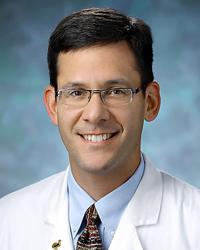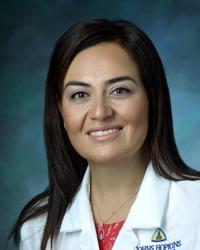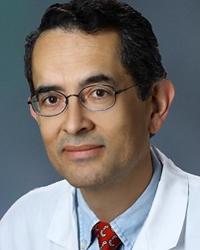-
Adam Lindsay Hartman, MD

- Director, Center for Pediatric Rasmussen Syndrome
- Adjunct Associate Professor of Neurology
Expertise: Neurology, Pediatric Neurology
-
Aylin Tekes, MD

- Section Chief, Pediatric Neuroradiology
- Associate Professor of Radiology and Radiological Science
Expertise: Pediatric Radiology
Our center offers the full spectrum of services for children with Rasmussen syndrome (Rasmussen encephalitis), including diagnosis and medical and surgical treatment. We treat children from birth to 21 years of age. Our team includes neurologists (including neuroimmunologists), neurosurgeons, and neuropathologists familiar with Rasmussen syndrome and conditions that mimic it. We partner closely with experts in rehabilitation and neuropsychology at the Kennedy Krieger Institute to provide the continuum of care.
Our Team
Johns Hopkins physicians are recognized as leaders in the treatment of Rasmussen syndrome, providing specialized and compassionate care.
Other doctors and health care professionals with special expertise in Rasmussen Syndrome may be part of your care team, including:
- Critical care doctors and nurses
- Neuropsychologists
- Physical, speech and occupational therapists
- Child life specialists
- Behavior psychologists
- Social workers
Rasmussen Syndrome Research
Our patients benefit from collaborative research that addresses the quality of life, physical and mental aspects of the condition and the child. Johns Hopkins researchers are dedicated to improving functional outcomes after surgery and advancing the understanding of the underlying immune changes that occur in Rasmussen syndrome. Our goal is to provide your child with the best chance at recovery.
-
Principal Investigator: Adam L. Hartman, MD
The purpose of this study is to assess outcomes in a variety of functional domains after surgical resection of an affected hemisphere in patients with Rasmussen syndrome, also known as hemispherectomy. We are particularly interested in the assessment of physical function (including walking, leg function, use of the affected arm and hand, language function, cognition, vision, and ability to participate in activities of daily living), as well as quality of life. Our ultimate goal is to understand which factors are most important to patients and their families as they attempt to achieve and regain as much function as possible.
-
Principal Investigator: Carlos Pardo, MD
The purpose of this study is to create a robust electronic database for patient information, as well as to collect samples from individuals being evaluated or treated for central nervous system diseases (including Rasmussen syndrome, multiple sclerosis, transverse myelitis, acute disseminated encephalomyelitis, neuromyelitis optica, among other conditions). We are also collecting information and samples from patients with other neurologic diseases such as migraine, neuropathy and sarcoidosis. Furthermore, volunteers can participate as healthy controls to support various research efforts.
We are collecting these samples and medical information so that they can be made available to research scientists who study these diseases. The goal of this research is to improve our ability to diagnose these conditions.




